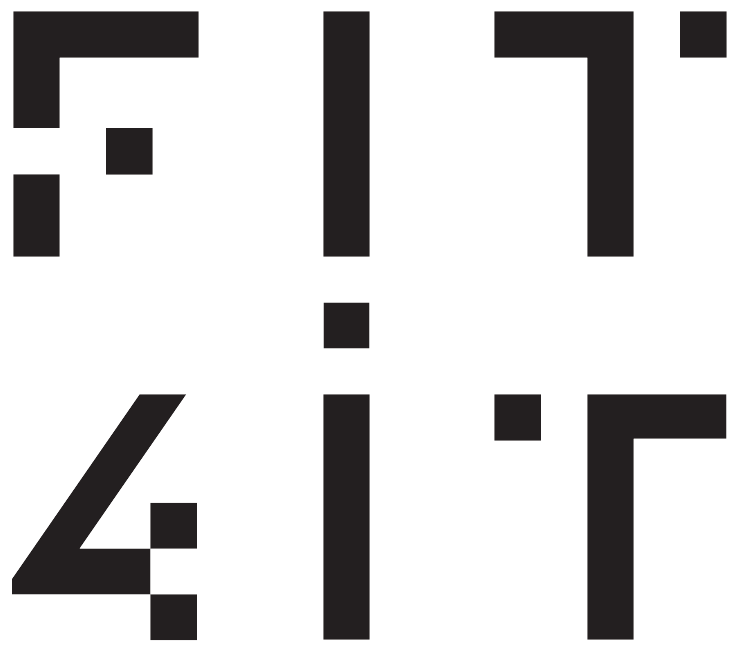If you’ve ever spent more time planning your workout than actually doing it, reworking your diet for the tenth time, or quitting and restarting your routine every few weeks, you might not have a discipline problem.
You might be an overthinker. At FIT4IT, we’ve worked with plenty of people who didn’t need more information. They needed less hesitation, fewer spirals, and a clearer path forward. Because for overthinkers, the problem isn’t a lack of desire, it’s a mind that won’t stop questioning every move. Sound familiar?
You’re not alone. And you’re not broken. But the way your mind works might be getting in the way of your physical progress. Here’s why overthinking people sabotage their fitness and how to overcome it.

Fitness for overthinking people is all about consistency and a plan.
Why Overthinkers Struggle With Fitness
Overthinking is essentially mental noise: constantly analyzing, predicting, doubting, tweaking, and second-guessing. It may be beneficial in some areas of life, but when it comes to fitness, it often leads to burnout before momentum even builds.
Here’s how it shows up:
- You research the “perfect” workout plan endlessly, but never stick with one.
- You stress about whether your form is correct instead of just moving.
- You hesitate to train because you don’t feel “ready” or “in the zone.”
- You compare your pace to others and feel behind before you start.
- You obsess over the scale, your macros, or your progress photos.
- You start strong, then quit because it’s not going “perfectly.”
Behind all this is a deep desire to get it right. But ironically, it’s the overanalysis that keeps you stuck.
The Fear of Getting It Wrong
Overthinking in fitness often comes from a quiet fear, the fear of failing, looking foolish, or not measuring up. You replay every possible outcome before you even begin, convincing yourself it’s better to wait than to risk doing it wrong. But the truth is, progress never starts from certainty. It starts with trying, adjusting, and learning as you go.
The people who grow stronger aren’t the ones who have all the answers. They’re the ones who show up anyway, even when they’re unsure. Every “mistake” is just feedback that shapes your next move. When you stop chasing the perfect start and instead focus on simply beginning, you’ll realize fitness is less about flawless execution and more about courage in motion.
The Real Goal: Reduce Friction, Not Raise Standards
If you overthink your fitness journey, your job isn’t to get “tougher” or “more motivated.” Your job is to create less mental friction between you and action.
Instead of asking:
- Is this the perfect plan?
- What if I mess up this week?
- What if I don’t see results fast enough?
Try asking:
- What’s the simplest next step I can take today?
- How can I move for just 10 minutes right now?
- What would I do if I weren’t trying to be perfect?
The goal is not to shut off your mind; it’s to direct it toward movement, not paralysis.
How To Stop Overthinking Your Fitness Journey
Here are some strategies we use at FIT4IT to help overthinkers get out of their heads and into momentum:
1. Pick a Plan. Then Commit to Following It Without Editing for 30 Days:
Stop switching programs halfway through. Choose a simple structure that fits your life and stick to it. It doesn’t have to be perfect; it just needs to be consistent. Review only after 30 days.
2. Shrink the Goal to the Next Action
Don’t focus on the 12-week transformation or losing 10 kg. Focus on today’s 20-minute workout. Or prepping a single healthy meal. Small, repeatable wins build trust and progress faster than big, overwhelming goals.
3. Default to Movement, Not Motivation
You won’t always feel ready. That’s normal. Instead of negotiating with yourself, build habits that require as little thinking as possible and leave the ones that are unhealthy. Morning walks. Scheduled sessions. Pre-packed gym bags. Structure beats motivation every time. For some overthinkers, joining a structured personal training program can be a game-changer, as it replaces self-doubt with guided action and accountability.
4. Give Your Mind a Container
Journaling or scheduling a weekly “overthink” session can help. Allow yourself a short window to process your doubts, check in on progress, and make adjustments, then shut that window and act. Overthinking thrives when it’s constant and uncontained. Integrating yoga into your routine can also help calm mental chatter, grounding your thoughts while improving flexibility and focus.
5. Use “Good Enough” Thinking
Not every session needs to be your best. Not every meal needs to be perfectly balanced. But you should aim for proper meal planning for your good health.
Real Progress Comes From Simplicity, Not Complexity
The truth is, fitness isn’t about constantly analyzing every variable. It’s about showing up, over and over, regardless of mood, doubts, or overplanning.
Here’s what progress actually looks like:
- Doing your workout even when it’s not your best.
- Eating well most of the week, even with a few off-plan meals.
- Resting without guilt, because recovery is part of the plan.
- Missing a day, but not quitting the week.
What We Tell Our FIT4IT Clients
We don’t want your journey to be flawless. We want it to be real. That means setbacks. Slow weeks. Missed workouts. Mental spirals. It’s all part of the process.

The key is to create a structure that reduces mental noise, like scheduled workouts or pre-set meal plans.
What matters is that you keep choosing action, even when your brain tries to convince you otherwise. Working with a life coach can provide clarity and direction, helping you turn overanalysis into purposeful steps toward your fitness goals. When you stop letting every thought need a response and start letting habits take the lead, everything gets lighter.
Final Words
If you’ve been stuck in your head, replaying the same fitness doubts and dilemmas for weeks or months, this is your sign to step forward anyway. Fitness isn’t a test you pass or fail. It’s a rhythm you build. And that rhythm begins with imperfect, ordinary steps repeated with care.
Stop waiting for the perfect version of yourself to begin. The version you are today is enough to start. Are you an overthinker who’s tried to “do it right” but ended up stuck? What’s one small action you can take today without reworking it ten times?
Was this helpful?
Good job! Please give your positive feedback
How could we improve this post? Please Help us.







No Comments